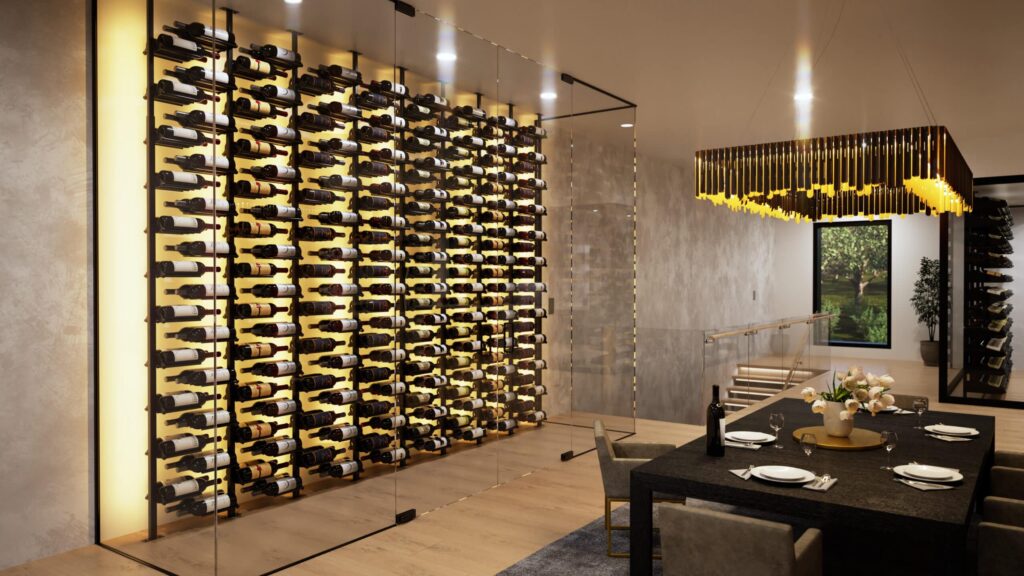At least a few dedicated readers have reached out with questions after reading our wine cellar blogs—yes, I see you! Constructing a glass-enclosed wine cellar is far more complex than installing mirrors or a shower enclosure. To help, we’ve outlined everything you need to consider, from start to finish.
1. Location: Where Can I Put a Wine Feature?
You’ve decided on a wine feature—great! But do you have the space? You might, without even realizing it.
Glass wine cellars don’t need to be massive, dominating structures. Instead, think creatively about unused spaces:
Under the stairs
In a niche
Inside an unused closet
Often, we only consider “active” space when planning, but incorporating “static” space can optimize your options.
Another key question: How many bottles do you plan to store? This will influence both your space requirements and the best racking system for your needs.
2. To Enclose or Not to Enclose?
Do you need a glass enclosure? Not necessarily. Your decision depends on:
Consider:
While glass-enclosed wine features are common, open designs can be just as stunning. One of our favorite projects featured chrome single-bottle wall racking and Ultra Clear mirror, creating the illusion of floating bottles in an open niche—no glass enclosure needed!
3. Insulated vs. Non-Insulated Glass
Myth: “A refrigerated wine enclosure requires insulated glass.”
Reality: No—and we don’t use it for our installations.
After consulting our lead installer, we confirmed that both insulated and non-insulated glass function similarly—the difference is mostly aesthetic.
Insulated Glass:
Comes with bulky wood or metal framing
Typically used in commercial settings (e.g., storefronts)
Not ideal for sleek, frameless designs
Non-Insulated Glass:
We use ½” tempered glass in Southwest Florida
Creates a beautiful, frameless “jewel box” look
Handles humidity and refrigeration without condensation issues (as long as cooling vents aren’t directed at the glass)
4. Climate Control: Do You Need It?
The decision to refrigerate your wine cellar depends on:
Climate-Controlled Cellars
✔ Best for long-term collectors
✔ Maintains ideal temperature (55°F) and humidity (60-70%)
✔ Requires:
Non-Refrigerated Cellars
✔ Great for short-term storage
✔ Lower cost
✔ Best for:
5. Wine Racking & Storage Solutions
Your racking system should match your collection size and style preferences:
Consider:
6. Lighting & Finishing Touches
Lighting enhances both function and ambiance:
LED strip lights – Energy-efficient and low-heat
Spotlights – Highlights specific bottles
Dimmable options – Adjusts for mood
Bonus Tip: Avoid direct sunlight, which can damage wine over time.
Final Thoughts
Building a glass wine cellar is an exciting project that combines luxury and practicality. By considering location, glass type, climate control, and storage needs, you can create a stunning showcase for your collection.
Need Help Designing Your Dream Wine Cellar?
Visit our showroom or contact our experts at info@coolwinecellar.com or call us at 800-323-3130 for personalized advice!

